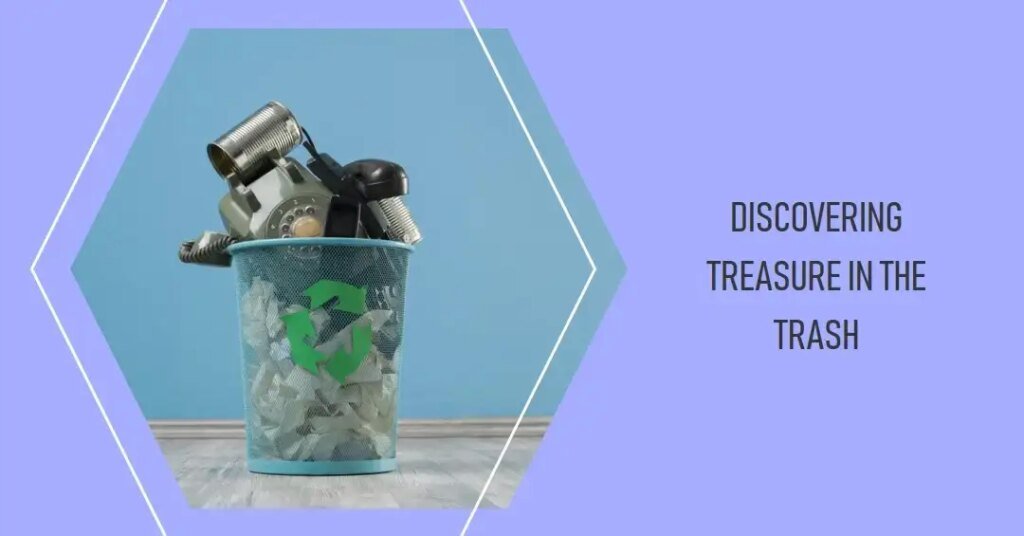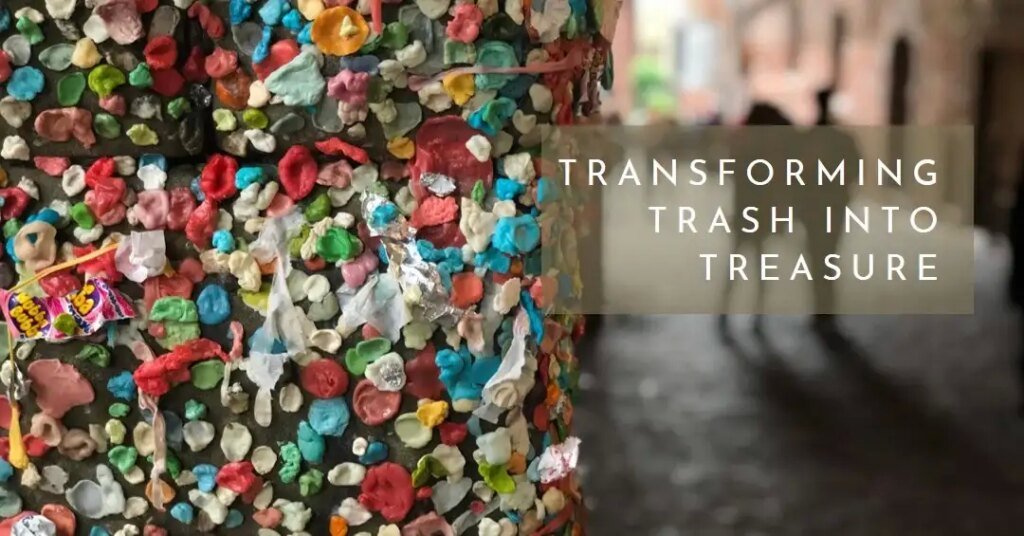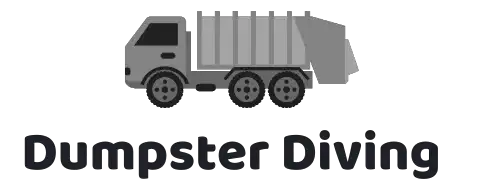Treasure hunting in dumpsters is an unconventional but fascinating hobby that involves searching through dumpsters or trash bins for valuable items. It may sound strange, but many people engage in this activity as a way to find hidden treasures, discarded items with potential value, or simply to reduce waste by salvaging usable items. Dumpster diving, as it is commonly known, is legal in most places as long as you are not trespassing or causing a disturbance.
What is Treasure Hunting in Dumpsters?
Treasure hunting in dumpsters is essentially the act of searching through trash bins or dumpsters in hopes of finding items of value. This can include anything from discarded furniture, electronics, clothing, or even antiques. Some individuals also look for recyclable materials such as aluminum cans or scrap metal that can be exchanged for cash. The allure of dumpster diving lies in the possibility of finding valuable items that others have deemed as trash.
Benefits and Risks of Dumpster Diving
There are both benefits and risks associated with treasure hunting in dumpsters. Some of the potential benefits include:
- Finding valuable items for free or at a significantly reduced price.
- Reducing waste by reusing or recycling items.
- Saving money on everyday essentials such as furniture, household items, or clothing.
However, there are also risks to consider:
- Health and safety hazards due to exposure to unsanitary conditions or sharp objects.
- Potential legal issues if trespassing or violating local ordinances.
- Social stigma associated with engaging in dumpster diving.
In conclusion, treasure hunting in dumpsters can be an exciting and cost-effective way to find hidden treasures or reduce waste. However, it is important to be mindful of the potential risks involved and to engage in this activity responsibly and legally.
Tools and Equipment
When it comes to dumpster diving, having the right tools can make the process easier and more efficient. Here are some essential tools commonly used by dumpster divers:
- Flashlight: A reliable and powerful flashlight is crucial for illuminating the inside of dumpsters, especially those in dimly lit areas or during nighttime adventures.
- Gloves: Sturdy gloves are essential to protect hands from sharp objects, broken glass, or substances that may be harmful or unsanitary.
- Grabber or Tool: A long-handled grabber or tool can help reach items in the back of dumpsters without having to climb inside or risk injury.
- Bags or Containers: Bring along sturdy bags or containers to safely transport your finds. This will help keep everything organized and prevent damage.

Safety Gear and Precautions
Prioritizing safety is essential when engaging in dumpster diving. Here are some safety tips to keep in mind:
- Wear Protective Clothing: Along with gloves, consider wearing long sleeves, long pants, and closed-toe shoes to minimize the risk of injuries and exposure to hazardous materials.
- Avoid Food and Medical Waste: To prevent the risk of contamination or illness, it is best to stay away from dumpsters that contain food or medical waste.
- Respect Private Property: Make sure to dumpster dive in legal areas and avoid trespassing on private property. Be mindful of any signs or regulations that prohibit dumpster diving.
- Clean and Disinfect Finds: Once treasures are retrieved, make sure to clean and disinfect any items that may come into contact with the skin or be used in the home.
By using the right tools and taking necessary safety precautions, individuals can enjoy the adventure of dumpster diving while minimizing potential risks. Remember to always practice responsible and legal dumpster diving.
Categorizing Dumpster Finds
Dumpsters near furniture stores or residential areas can contain discarded furniture and home decor items. It’s not uncommon to find chairs, tables, lamps, or even small appliances like fans or lamps. While some items may require cleaning or minor repairs, it can be an excellent way to find affordable pieces for decorating or furnishing your home.
Books, Magazines, and Paper Materials
Dumpsters near libraries, bookstores, or offices often hold books, magazines, and paper materials. These can include novels, textbooks, comic books, or even valuable collectibles like first editions. Be sure to inspect the condition of the items, as some may have water damage or be written on. Additionally, recycling bins may contain stacks of newspapers or cardboard that can be reused for arts and crafts projects.
Food and Beverages
While caution should be exercised when dealing with food and beverages found in dumpsters, it is not uncommon to come across perfectly fine packaged foods that are nearing their expiration dates. Non-perishable items like canned goods or unopened bottles can still be consumed safely. However, it is important to use your judgment and avoid any items that appear spoiled or have been improperly stored. When in doubt, it’s best to err on the side of caution and dispose of questionable food items.
Arts and Crafts Supplies
Dumpsters near art supply stores, school buildings, or creative spaces often hold discarded arts and crafts supplies. This can include items like paintbrushes, canvases, fabric scraps, or even unfinished projects. These finds can be a great way to explore new hobbies or expand your existing creative endeavors without breaking the bank. Just make sure to inspect items for any damaged or expired materials, especially if they involve potentially harmful substances like chemicals or solvents.
Sorting and Organizing
Sorting through dumpster finds and organizing them efficiently can help make the most of your discoveries. Here are some tips for sorting and organizing your dumpster finds:
| Tip | Description |
|---|---|
| Inspect and Clean | Before sorting, inspect and clean the items to ensure they are in usable condition and free from any dirt, pests, or odors. |
| Group by Category | Sort your finds into categories such as clothing, electronics, kitchenware, or home decor. This will make it easier to locate items when needed. |
| Prioritize Usefulness | Consider the usefulness and condition of each item. Discard or donate items that are damaged beyond repair or do not serve a purpose for you. |
| Create Storage Solutions | Invest in storage containers, shelves, or racks to keep your dumpster finds organized and easily accessible. Label boxes or bins for quick identification. |
| Keep a Inventory List | Maintain a detailed inventory list of all your dumpster finds. This will help you keep track of what you have and prevent duplication of items. |
Creating a System for Categorization
Creating a system for categorizing your dumpster finds can save time and help maintain organization. Here are some steps to follow when creating a categorization system:
- Assess your finds: Determine the most common types of items you come across during your dumpster dives.
- Decide on categories: Create broad categories based on common item types, such as clothing, electronics, household items, or personal care products.
- Subdivide categories: Within each main category, further divide items based on their specific characteristics or functionalities. For example, within the clothing category, you can have separate sections for shirts, pants, shoes, and accessories.
- Label and store: Label storage containers or areas with the designated categories. Clearly mark each item as you place them in their respective sections to ensure easy retrieval.
- Regularly review and reorganize: As you accumulate more finds, regularly review your categorization system and make adjustments as needed to accommodate new items.
By following these tips and creating a systematic approach to sorting and organizing your dumpster finds, you can maximize the benefits of your discoveries while maintaining an organized and efficient space.

Repurposing and Upcycling
When it comes to dumpster diving, the possibilities for repurposing and upcycling your finds are endless. Here are some creative ideas to give new life to your dumpster treasures:
- Furniture Makeovers: Update old chairs, tables, or dressers with a fresh coat of paint, new hardware, or reupholstering. You can transform a worn-out piece into a stylish and unique addition to your home.
- Garden Decor: Turn discarded items like old ladders, window frames, or tires into charming garden decorations. Use them as planters, create vertical gardens, or craft unique sculptures to add personality to your outdoor space.
- Art and Crafts: Use salvaged materials to create artwork or crafts. Broken tiles can be turned into mosaic pieces, wine bottles can become elegant vases and scraps of fabric can be used for quilting or sewing projects.
- Repurposed Storage: Transform old crates, suitcases, or baskets into stylish storage solutions. These repurposed containers can be used to organize your belongings while adding a vintage touch to your decor.
DIY Projects and Ideas
If you enjoy getting your hands dirty and love the satisfaction of creating something yourself, here are some DIY projects and ideas to try with your dumpster finds:
- Outdoor Seating: Use discarded wooden pallets to build outdoor seating like benches or lounge chairs. Add cushions or repurposed fabric to make them comfortable and inviting.
- Upcycled Lighting: Repurpose old lamps, lampshades, or even broken chandeliers to create unique lighting fixtures. With a little creativity and some electrical knowledge, you can turn trash into eye-catching accessories for your home.
- Pallet Projects: Wooden pallets can be repurposed into various furniture pieces like coffee tables, shelves, or even beds. These DIY projects allow you to customize your home decor while minimizing waste.
Remember, repurposing and upcycling dumpster finds can not only save you money but also contribute to a more sustainable lifestyle. Get creative, embrace the potential in discarded items, and enjoy the satisfaction of giving them a new purpose.
Where to Sell or Donate
When you find valuable items in the dumpster that you don’t want to keep for yourself, there are several online platforms where you can sell them and make some extra money. These platforms provide a convenient way to connect with potential buyers who are interested in repurposed or upcycled items. Here are a few popular online platforms for selling your dumpster finds:
- Etsy: This online marketplace is known for its handmade and vintage items. It’s a great platform to sell your repurposed furniture, artwork, and crafts.
- eBay: With a wide reach and a large customer base, eBay allows you to sell all kinds of items, including your dumpster treasures.
- Facebook Marketplace: This platform allows you to sell items locally, making it convenient for buyers in your area to find and purchase your repurposed or upcycled goods.

Charities and Organizations Accepting Donations
If you prefer to donate your dumpster finds instead of selling them, there are several charities and organizations that would gladly accept your donations. Here are a few options to consider:
- Goodwill: Goodwill accepts a wide range of items, including furniture, clothing, and household goods. Your donations will help support job training programs for people in need.
- Habitat for Humanity ReStore: ReStore accepts donations of building materials, furniture, and appliances. The proceeds from the sales go towards building affordable homes for families in need.
- Local homeless shelters or charity shops: Many local organizations provide support to homeless individuals and families. Donating your items to these organizations can directly help those in need.
Whether you choose to sell or donate your dumpster finds, remember that you’re making a positive impact by giving these items a new life or helping others in need.
Conclusion
Dumpster diving not only benefits individuals by providing them with valuable items, but it also has a positive impact on the environment. By rescuing discarded items and giving them a new purpose, dumpster divers contribute to reducing waste and landfill usage. Repurposing and upcycling items found in dumpsters helps in conserving resources and reduces the need for new production. Additionally, by diverting these items from landfills, dumpster divers minimize the pollution and greenhouse gas emissions associated with the manufacturing and disposal of new products. This practice aligns with the principles of sustainability and encourages a more circular economy.
Final Thoughts on Treasure Hunting in Dumpsters
While dumpster diving may not be for everyone, it can be a rewarding and adventurous activity for those who are willing to give it a try. Apart from the potential financial gain from selling dumpster finds, it also allows individuals to explore their creativity and resourcefulness by repurposing discarded items. However, it is important to note that dumpster diving comes with legal and safety considerations. Always make sure to follow local laws and regulations, and prioritize your personal safety when engaging in this activity.
Whether you choose to sell or donate the items you find in dumpsters, remember that you are making a positive impact. By giving new life to discarded items or helping those in need, you are contributing to a more sustainable and compassionate society. So, put on your gloves and grab a flashlight, because you never know what treasures await you in the dumpster!

Greetings, eco-conscious explorers! I am Arjun Bandari, a seasoned Dumpster Diving enthusiast with over a decade of expertise in uncovering hidden treasures amidst the discarded. My journey into this unconventional lifestyle began in New York, fueled by a passion for sustainability and a desire to challenge the norms of our throwaway culture.
With a bachelor’s in Enviromental Health and Safety, I seamlessly blend academic insights with practical experiences to navigate the world of Dumpster Diving. Over the years, I’ve become a recognized figure in the sustainable living community, sharing my discoveries and insights through workshops, community outreach, and various online platforms.
My commitment to promoting eco-friendly practices has garnered attention from local and regional media, earning me featured spots in publications that highlight the environmental impact of Dumpster Diving. As an advocate for responsible waste management, I have been honored with awards recognizing my contributions to the field.
In addition to my hands-on experiences, I’ve extended my reach through various published works, shedding light on the untapped potential within discarded items. Whether it’s repurposing furniture, salvaging electronics, or sharing practical tips for fellow Dumpster Diving enthusiasts, I am dedicated to inspiring a conscious and sustainable way of living.
Join me on this exciting journey as we redefine the narrative around waste, discover hidden gems, and collectively contribute to a greener, more sustainable future. Together, let’s dive into the world of Dumpster Diving and uncover the beauty beneath the surface of our disposable society.

